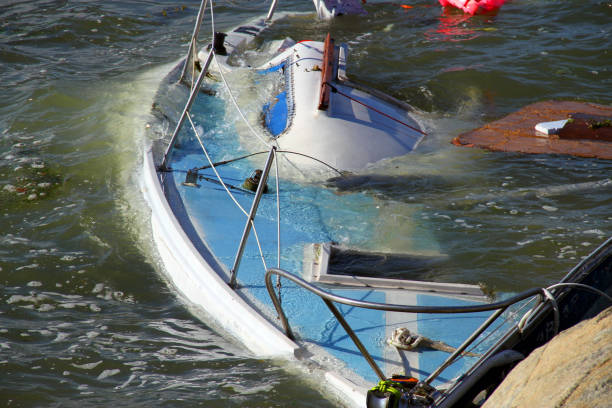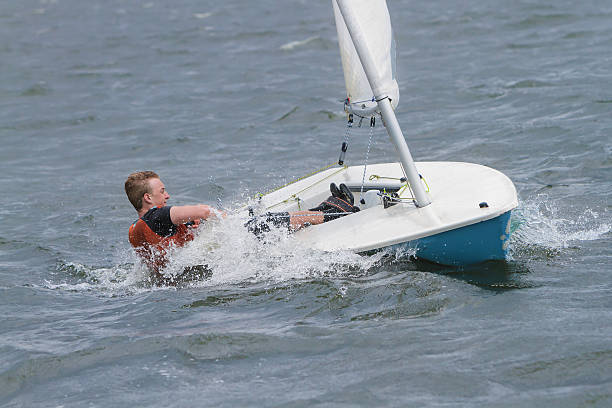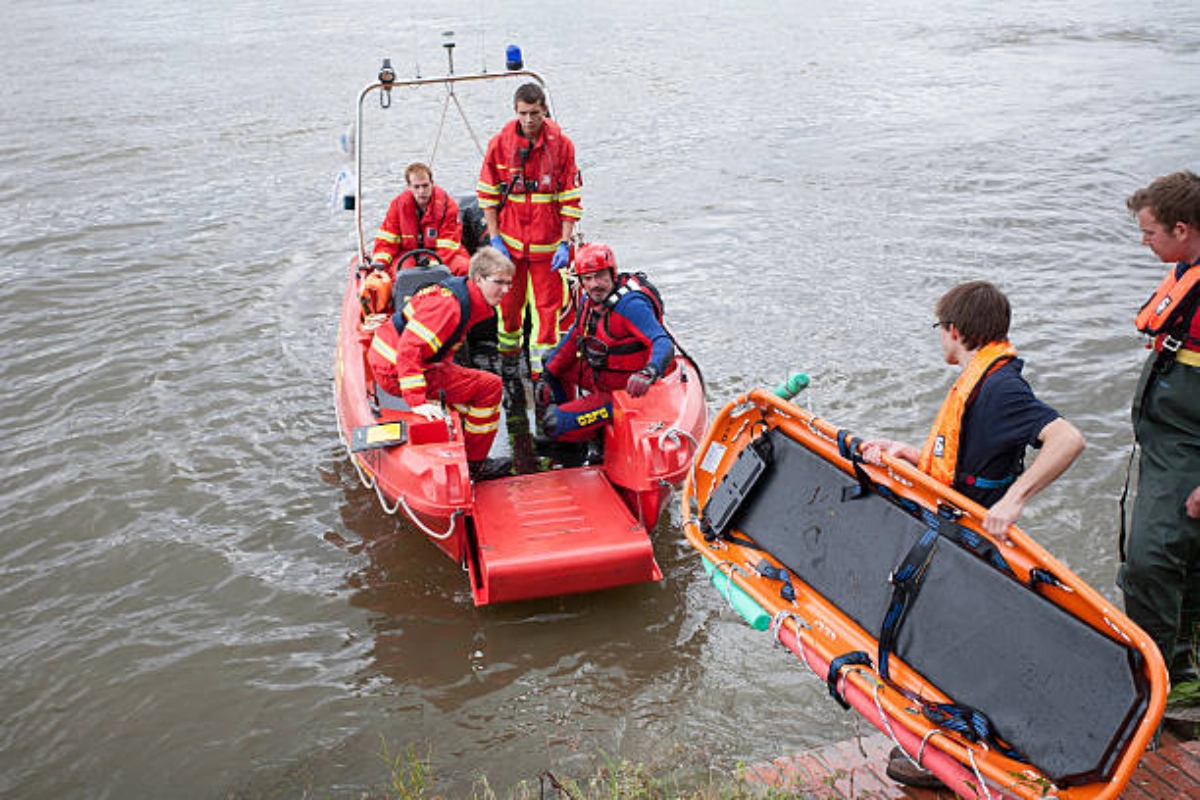Boating can be an enjoyable recreational activity, but accidents on the water can have serious and sometimes fatal consequences. Understanding what to do if you’re injured in a boating accident is essential—not just for your safety, but also for protecting your legal rights and receiving compensation for your losses.
Understanding Boating Accidents and Their Causes
Boating accidents are more common than many people realize. According to the U.S. Coast Guard, thousands of recreational boating accidents occur every year in the U.S., leading to injuries, property damage, and fatalities. Common causes include:
- Operator inattention or inexperience
- Speeding or reckless navigation
- Alcohol or drug use
- Mechanical failure
- Adverse weather or water conditions
Certain watercraft types, such as personal watercraft (Jet Skis), fishing boats, and speedboats, are more frequently involved in accidents due to their high speeds and recreational nature.

Ready to connect with top legal professionals? Get immediate support— Call us at 877-550-8911.
Connect with Our Legal Team
Immediate Steps to Take After a Boating Injury
If you’re injured in a boating accident, take these steps immediately:
- Seek Medical Attention – Your health is the priority. Even if injuries appear minor, internal injuries or concussions may not be immediately visible.
- Call for Help – Use a marine radio or cell phone to contact emergency services.
- Document the Scene – Take photographs of the boats, surroundings, visible injuries, and safety equipment.
- Collect Witness Info – Get the names and contact details of passengers, bystanders, and others involved.
- Report the Accident – Notify the Coast Guard or appropriate state agency. A formal accident report may be required under U.S. maritime law.
Common Boating Accident Injuries
Boating accident injuries vary depending on the nature and severity of the crash. Common injuries include:
- Fractures and broken bones from impact or falling overboard
- Lacerations caused by propellers or sharp equipment
- Head and brain injuries due to being thrown or struck
- Drowning or near-drowning incidents
- Spinal cord injuries from high-speed collisions
- Burns from fires or explosions
- Psychological trauma, including PTSD and anxiety
Some injuries may require long-term care and rehabilitation, making it critical to document everything for potential legal action.
Legal Rights and Responsibilities of Boaters
Under both state and federal maritime law, all boaters have a
legal duty of care to operate vessels safely. Violations—such as operating under the influence, ignoring safety laws, or overloading the boat—can lead to
negligence claims.
If you’re injured due to another party’s negligence, you may be entitled to compensation for:
- Medical expenses
- Lost wages or earning potential
- Pain and suffering
- Emotional distress
- Property damage
In serious cases, families may also pursue
wrongful death claims.
🔗 Learn more about your legal rights at
LegalCaseReview.com.
How to File a Boating Accident Injury Claim
To file a boating accident injury claim, follow these steps:
- Gather Evidence
- Include photos, videos, police or Coast Guard reports, and witness accounts.
- Get Medical Documentation
- Keep records of diagnoses, treatments, prescriptions, and follow-ups.
- Identify the At-Fault Party
- This could be the boat operator, rental company, equipment manufacturer, or another negligent party.
- Contact Insurance Providers
- Notify your insurance and, if applicable, the liable party’s insurer.
- Consult a Maritime Injury Lawyer
- Laws can be complex—especially with jurisdictional issues in waterways. An experienced attorney can help you build a strong case.
The Role of Insurance in Boating Accident Cases
Insurance can be a critical part of your recovery. Coverage might include:
- Boater liability insurance – Covers injury or damage to others
- Medical payments coverage – Pays for medical care regardless of fault
- Uninsured/underinsured boater coverage – Helps when the at-fault party lacks coverage
- Hull insurance – Covers damage to your own vessel
Always check the fine print of your insurance policy. Some policies exclude coverage for certain activities like boat racing or alcohol-related accidents.
You can also review boating insurance guidelines via the National Association of Insurance Commissioners (NAIC).
Seeking Medical Attention and Documentation
Getting prompt medical attention isn’t just critical for your recovery—it’s essential for your claim. When seeking care:
- Request copies of all diagnostic tests (X-rays, MRIs)
- Maintain a personal injury journal tracking symptoms and progress
- Record any time off work and lost income
- Keep receipts for medical-related travel, therapy, and medication
This documentation helps demonstrate the full impact of the accident on your life.
 Preventative Measures to Avoid Boating Accidents
Preventative Measures to Avoid Boating Accidents
While knowing what to do after an injury is important, prevention remains the best protection. Here are ways to avoid future accidents:
- Always wear a U.S. Coast Guard-approved life jacket
- Avoid alcohol when operating watercraft
- Complete a boating safety course from sources like the National Safe Boating Council
- Inspect your boat before departure
- Ensure navigation lights and communication equipment work
- Follow posted speed limits and no-wake zones
Responsible boating saves lives and reduces the chance of legal liability.
Frequently Asked Questions (FAQs)
1. Do I need a lawyer for a boating accident injury?
It’s strongly advised. Boating accidents can involve complex laws (state, federal, or maritime), and a lawyer can help maximize your compensation.
2. Who is responsible in a boating accident?
Responsibility depends on the circumstances. It could be the boat operator, owner, a rental company, or even a manufacturer if equipment malfunctioned.
3. Can I sue for pain and suffering?
Yes, if another party’s negligence caused the accident, you may be entitled to compensation for physical and emotional suffering.
4. How long do I have to file a claim?
The statute of limitations varies by state and case type. Some maritime claims have a limitation period of just
1 to 3 years, so act quickly.
5. What if the at-fault party doesn’t have insurance?
You may still be able to file a claim under your own
uninsured boater coverage or pursue a personal lawsuit for damages.
For more resources and personalized legal guidance, visit
Legal Case Review.
Don’t wait to secure the legal representation you deserve. Visit Legal Case Review today for free quotes and tailored guidance, or call 877-550-8911 for immediate assistance.

 Preventative Measures to Avoid Boating Accidents
Preventative Measures to Avoid Boating Accidents


